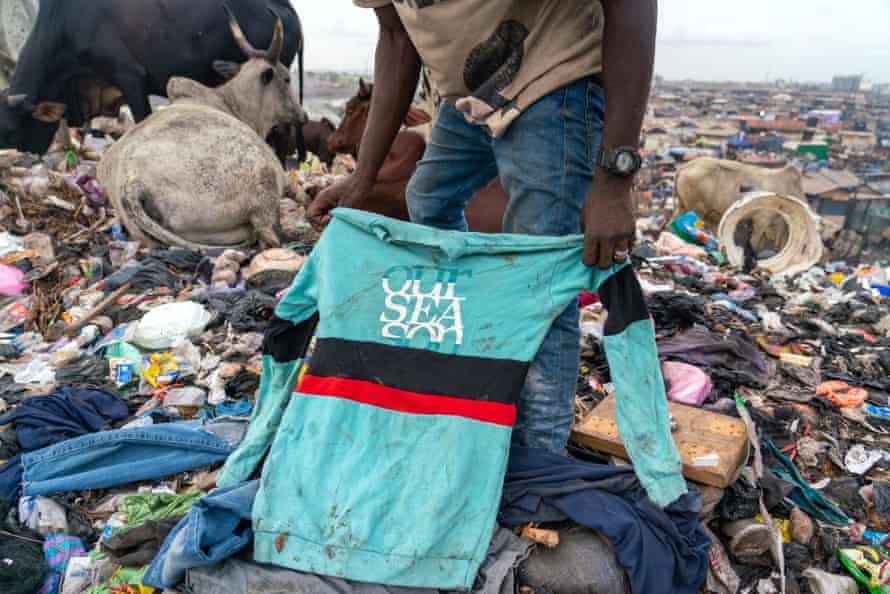Chinese fashion giant Shein might be the least expected organization to win plaudits at an international conference on fashion sustainability, but that’s what happened at this week’s world fashion summit in Copenhagen.
The industry’s largest forum for sustainable progress saw the ultra-fast fashion brand praised for making a $15m (£12m) donation over three years to a charity working at Kantamanto in Accra, the clothing market world’s largest second-hand
Liz Ricketts, director of the Or Foundation, a Ghana- and US-based nonprofit organization that works with Accra’s textile waste workers, announced the fund, telling the audience through tears that the workers are doing exhausting job.
“They are economic migrants from northern Ghana and often they are women and children, some as young as six. They carry bundles of clothes weighing 55kg on their heads, are paid a dollar a trip and return home to sleep on concrete floors.
“Some carry their babies on their backs. Sometimes they fall backwards from the weight of the bales, and their children die [underneath them].”
Ricketts said that 15 million second-hand garments arrive in Ghana every week, 40% of them as waste. “Ghana has no landfills or incinerators,” he said. “Clothing enters the environment; part goes to the oceans: there are millions of garments at the bottom of the ocean and the currents push the garments to the beach.
“There is a narrative in sustainable fashion that says: ‘There is no ‘out’. This is the ‘far’”.
 A waste worker in Accra sorts through discarded second-hand clothing shipped from the west. Photograph: Muntaka Chasant/REX/Shutterstock
A waste worker in Accra sorts through discarded second-hand clothing shipped from the west. Photograph: Muntaka Chasant/REX/Shutterstock
Not everyone was convinced by the gesture. “This was public greenwashing,” said one attendee who asked to remain anonymous, but echoed the sentiment of several at the summit who believe cutting back on fast fashion production is the answer. “This is too easy for Shein; it’s too early to call them leaders here. They have been valued at 100,000 million dollars [£80bn] – they have millions to spare. They should address the root cause of the problem.”
The Or Foundation runs a weekly clinic for garbage workers in Ghana, assessing the physical damage caused by carrying these heavy bales of clothing. “We can see the damage this work is doing to their bodies, but we can’t do anything to help them,” Ricketts said. She said that the Shein fund was not a substitute for responsible behavior, but part of her extended responsibility from the producer.
The promised money comes from a $50 million fund that the company says is intended to address the ecological and social problems of the global apparel trade.
The foundation says the money will fund an apprenticeship program for Kantamanto women, help community businesses recycle textile waste and improve working conditions in the market.
Ricketts called on other brands to be honest about their involvement in the waste crisis: “We’ve been asking brands to foot the bill for communities that have been managing their waste, and this is a significant step.” towards responsibility.
“What we see as truly groundbreaking is Shein’s recognition that their clothing may be ending up in Kantamanto, a simple fact that no other major fashion brand has been willing to state until now.”
Adam Whinston, head of ESG at Shein, said the company had an “ambitious” impact agenda. “Addressing second-hand waste is an important part of the fashion ecosystem that is often overlooked. We have an opportunity to make a difference in this space, and we look forward to working with the Or Foundation on this one-of-a-kind effort.”
Source: www.theguardian.com